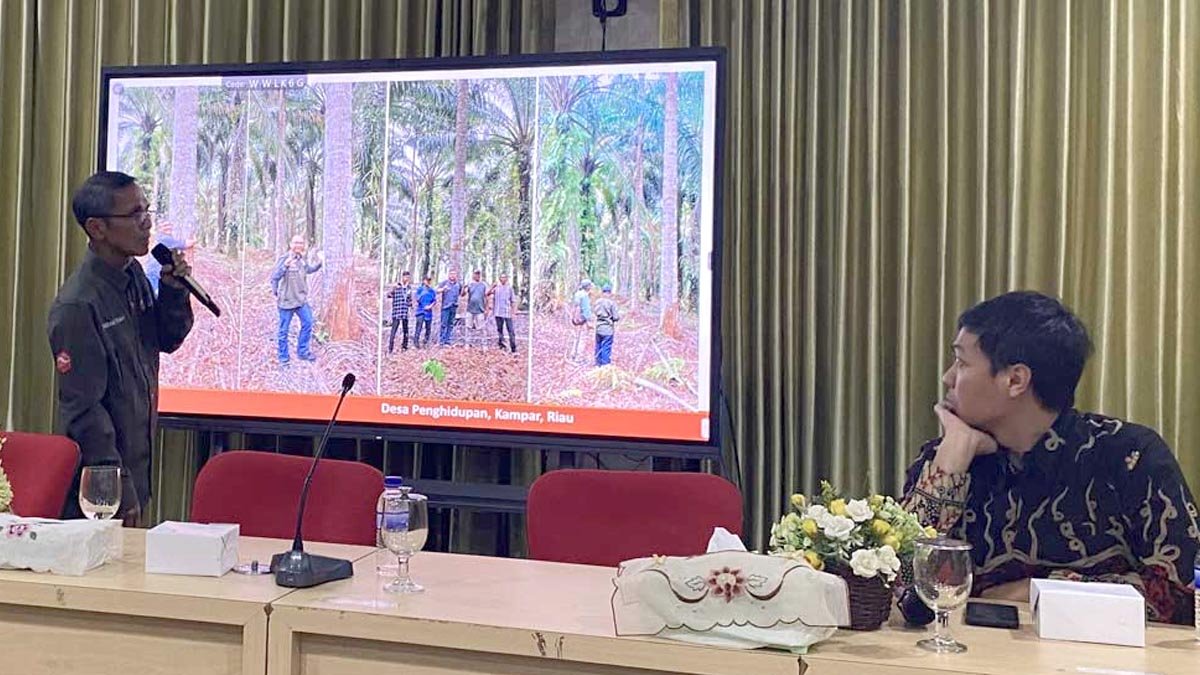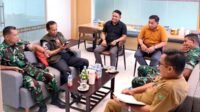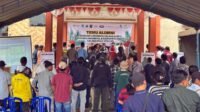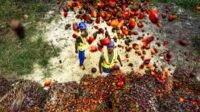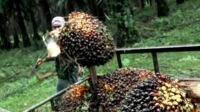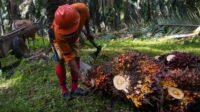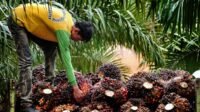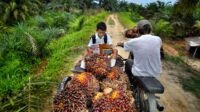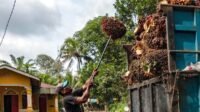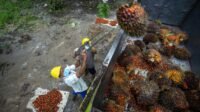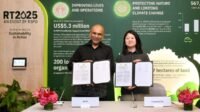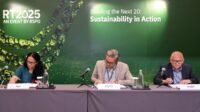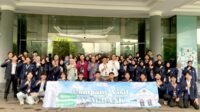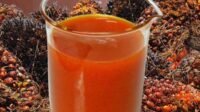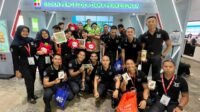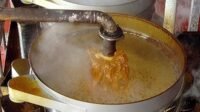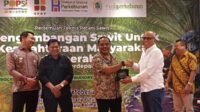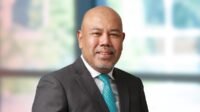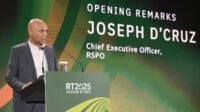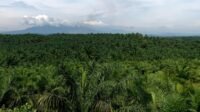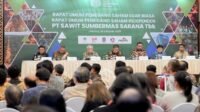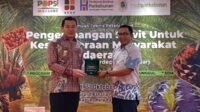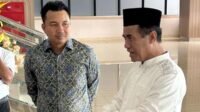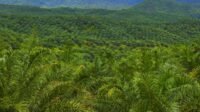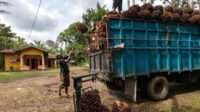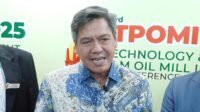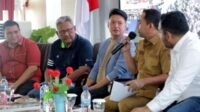PALMOILMAGAZINE, JAMBI – WWF-Indonesia, in collaboration with Pundi Sumatera Foundation, Universitas Jambi, Universitas Gadjah Mada (UGM), and Universitas Brawijaya, recently organized the Sekolah Jangka Benah (SJB) program at the Faculty of Agriculture, Universitas Jambi.
A total of 19 participants, including representatives from the Jambi Provincial Forestry Service, academics, and local farmer groups Bungo Pandan and Setia Jaya Mandiri, joined the initiative. The program aims to address the issue of oil palm plantations already established in forest areas, which pose significant ecological and economic challenges.
“The Sekolah Jangka Benah is designed to build technical, social, and policy understanding for the gradual application of palm oil agroforestry. It also serves as a starting point for developing demonstration plots that accelerate implementation and provide a learning platform for multiple stakeholders,” the organizers explained.
Also Read: Sintang Draft Regulation Aims to Strengthen Independent Smallholder Palm Oil Partnerships
During the workshop session, Bambang Yulisman, Head of Social Forestry at the Jambi Forestry Service, presented the mechanism for applying for social forestry permits, including rights, obligations, and post-permit management. He stressed the importance of land-use planning, management plans, business development, and resolving tenure conflicts. “Social forestry must enhance community welfare while preserving environmental balance,” he emphasized, as reported by WWF Indonesia on Wednesday (August 20, 2025).
Meanwhile, agroforestry expert from Universitas Jambi, Dr. Bambang Irawan, outlined techniques and opportunities for mixed-cropping systems with oil palm. According to him, agroforestry can improve land productivity by adding crops such as durian, coffee, avocado, and essential oil plants. “Besides supporting ecology, diversification also provides higher economic value,” he explained.
From UGM’s Faculty of Forestry, Dr. Hero Marhaento and his team introduced the Jangka Benah technical strategy, consisting of two stages: active planting with mixed oil palm systems, followed by fading out to gradually restore forest functions. They emphasized that success depends on continuous technical support, pro-community policies, and demonstration plots as proof of best practices.
Participants also engaged in hands-on sessions to design technical intervention plans for forest rehabilitation based on the Jangka Benah approach. The discussions were highly interactive, filled with questions and field experiences shared by farmers.
The high level of enthusiasm marked the close of the program’s first day. Organizers hope the initiative will serve as a milestone for sustainable forest restoration in Jambi and be replicated in other regions facing similar challenges. (P2)

